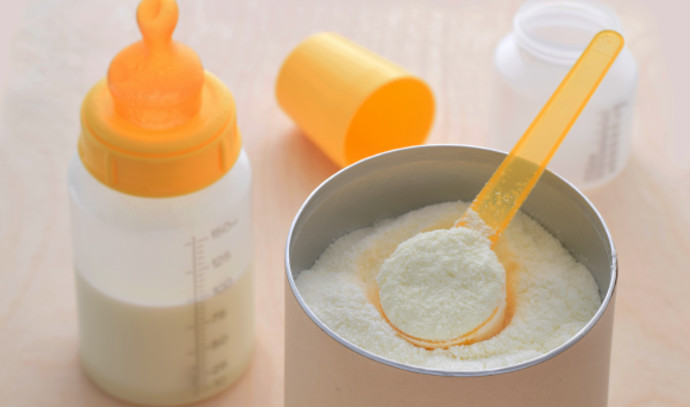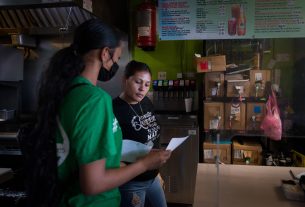A bacterium named Cronobacter has been found in the Israeli production line of Materna Mehadrin (phase one) powdered milk formula for babies aged 0 to 6 months.
The Health Ministry and the company maintained that the abnormal findings were discovered as part of quality control at the factory and that the infected formula did not reach the market. The Materna factory said that there will probably be a shortage of the product which is favored by haredi (ultra-Orthodox) families because of a “higher level of rabbinical supervision” and the fact that it is made from cow’s milk at farms run by Jews (Halav Yisrael).
“As part of the expansion of our sampling, additional findings were found in the production environment, but as stated in the company’s report, in light of the findings, the factory stopped the production of the formula for maintenance and cleaning operations,” the ministry said. “We continue to constantly monitor and verify that food businesses fulfill their responsibility towards the consumer to maintain food safety to protect public health.”
The dangers of Cronobacter bacteria contamination
Cronobacter bacteria are in the family of intestinal bacteria and can cause fever and even a dangerous blood infection called sepsis. They can also make the linings surrounding the brain and spinal cord swell, resulting in meningitis and, in rare cases, the death of infants. It could endanger newborns under two months of age and those born prematurely, with weakened immune systems or low birth weight. Symptoms will usually start with a fever and poor feeding, excessive crying or very low energy. Some babies may also have seizures.
The pathogen is naturally found in the environment and is particularly good at surviving in low-moisture, dry foods such as powdered infant formula. Powdered formula is not sterile and might have germs in it.
Powdered infant formula can get contaminated in homes or in processing facilities that make it. You can accidentally get Cronobacter in powdered formula after you open the container; the bacteria can live on surfaces in your home, such as a kitchen counter or sinks, and in water. If you place formula lids or scoops on contaminated surfaces and later touch the formula or if you mix the formula with contaminated water or in a contaminated bottle.
In a processing facility, Cronobacter can get into powdered formula if the manufacturer uses contaminated ingredients to make the formula or the powder touches a contaminated surface.
The news brought back unpleasant memories of a scandal exactly 20 years ago in which German-made Remedia-Mehadrin pareve soy-based infant formula approved by the Health Ministry lacked the vital vitamin B1 and cause the deaths of three infants and severe injury to more than 20 (including one who finally died as a teen). Five Health Ministry officials – four inspectors responsible for releasing food imports from quarantine at the Haifa and Ashdod ports and the then-head of the ministry’s National Food Service failed to properly check the documents and contents of the baby formula before it was released for distribution. However, the new case is not expected to have the same implications as the Materna story.



